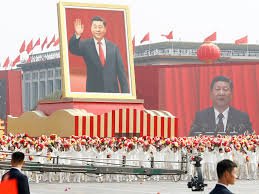
China’s Cultural Infiltration of North Korea: A Growing Threat to U.S. Interests
While global attention often focuses on military buildups and nuclear threats in North Korea, China is quietly waging a different kind of campaign — a cultural takeover. Through strategic investments in media, education, and technology, Beijing is reshaping North Korean society from within, aiming to align it more closely with Chinese values and interests.
At the core of this strategy lies a program initiated by China’s provincial propaganda departments in Liaoning, Jilin, and Heilongjiang. Known as the “Mutual Cultural Development and Cooperation” initiative, it presents itself as cultural exchange — but in reality, it’s a sophisticated effort to instill pro-China sentiment throughout North Korea.
Cultural Tools, Strategic Impact
Chinese-made MP7 and MP8 media devices have become popular among North Korean youth. While marketed as educational tools, these devices contain content ranging from Chinese TV dramas to propaganda films. Their clever design even allows users to disable wireless features, helping them avoid detection by authorities — a sign of China’s deep understanding of conditions inside North Korea.
China is also introducing new devices like the MP5 player and distributing vast amounts of content that promotes a vision of socialist civilization and Chinese cultural pride. All of this is translated into North Korea’s dialect to ensure local resonance and compatibility with state language policies.
More Than Just Media
China’s campaign extends into education and economic partnerships. At Pyongyang University of Science and Technology, Chinese professors help shape curriculum and provide advanced instruction. In industry, Chinese and North Korean firms are cooperating on electronics manufacturing and rare earth trade. These moves aren’t just about growth — they are about integrating North Korea into China’s regional ecosystem.
By doing so, Beijing is building a long-term foundation for influence that could limit U.S. and allied strategic flexibility in Northeast Asia.
Why This Matters to the U.S.
This cultural expansion carries clear implications for American national security:
China’s cultural campaign in North Korea is not just about soft power — it’s a calculated move to reshape the region’s ideological balance and extend Beijing’s influence. As this trend continues, it’s crucial for the international community, especially in the U.S., to monitor and understand the long-term impact of this shift. Cultural influence may not make headlines like missiles or tanks, but its effect on regional stability and global power dynamics could be just as profound.